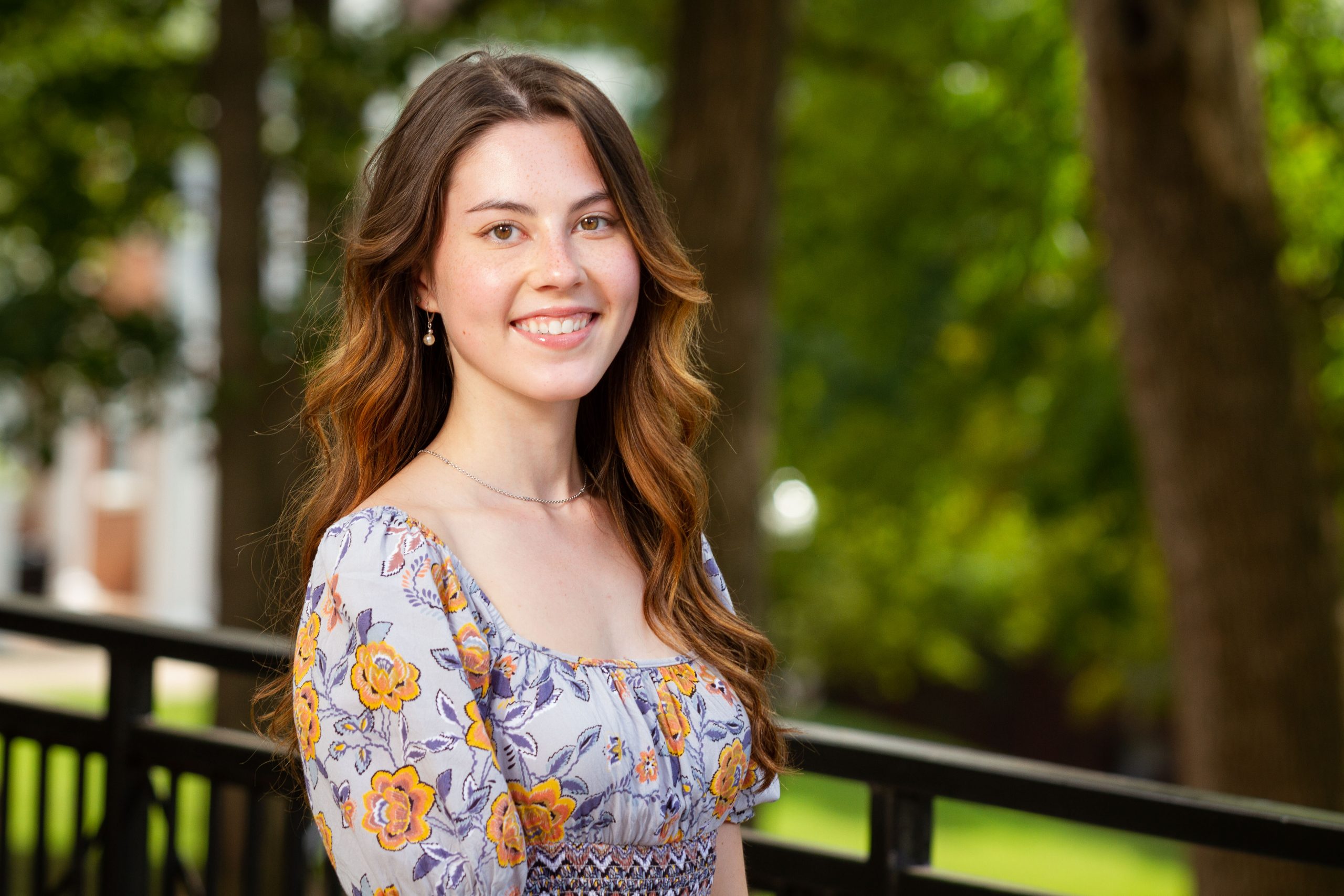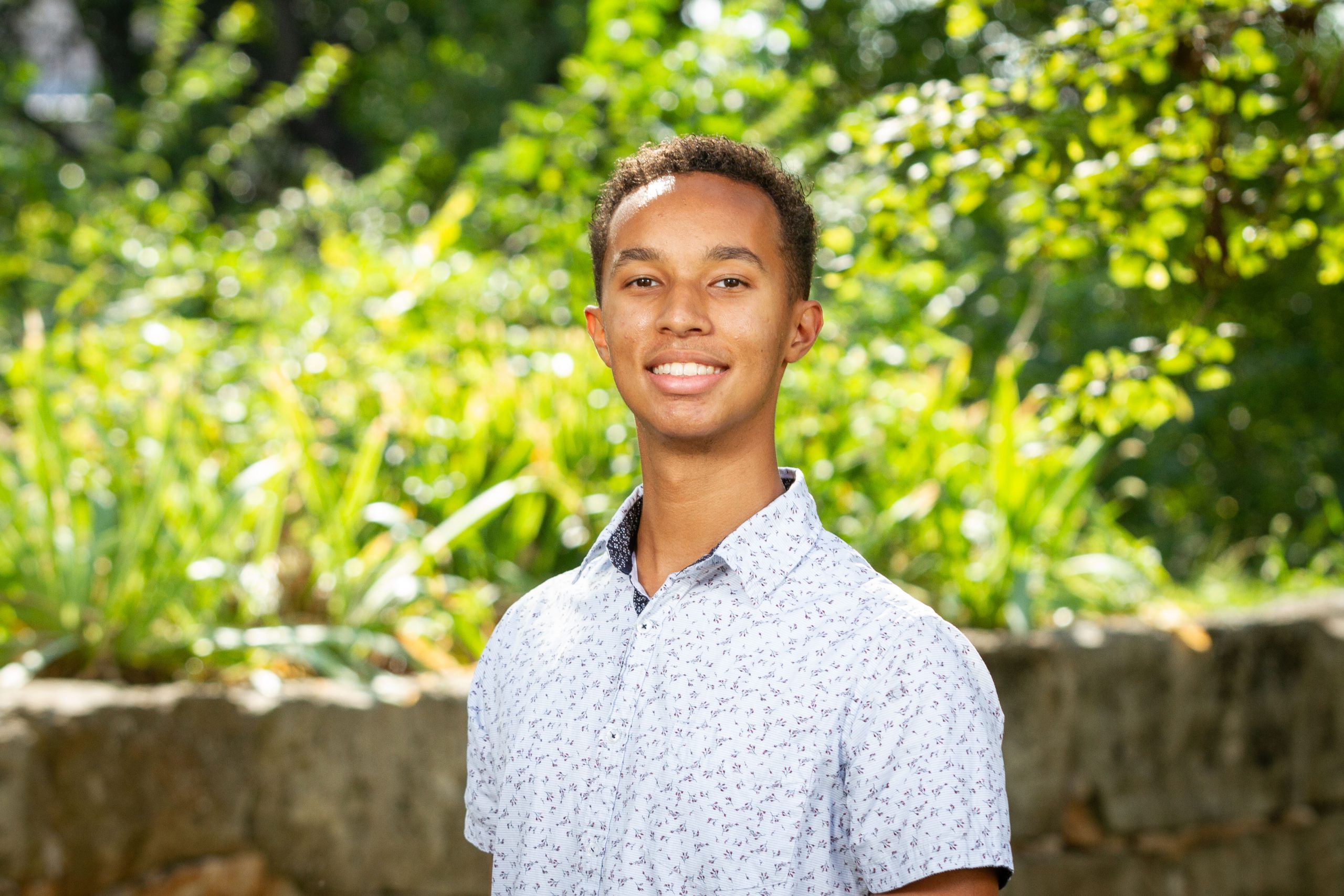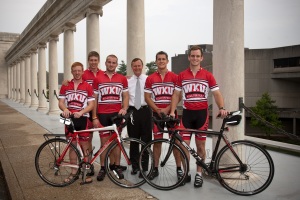Gatton Academy’s First College Graduates Plan Exciting Futures
July 22, 2010 | Academics, Alumni, News, People, Student Success, WKU | No Comments
Even though the Gatton Academy will enter its fourth year this fall, the advanced high school continues to celebrate a series of firsts. This spring, four former students became the program’s first alumni to earn bachelor’s degrees.
Through a combination of Advanced Placement courses in high school, diligence in their time at the Gatton Academy, and hard work (including summer classes) as they continued their undergraduate studies, these individuals finished their undergraduate experience in a total of three years. All four will enter graduate or professional programs this fall.
Ellen Boswell Duke (’08) earned a Bachelor of Arts degree in Religious Studies from WKU, where she also minored in Mathematics. Duke will attend Case Western Law School this fall. She married fellow Academy alumnus Seth Duke this summer – the first marriage of two Gatton graduates.
Tyler Clark (’08) earned a Bachelor of Science degree in Mathematics from WKU. Tyler also minored in Religious Studies. Tyler will begin a Master’s program in Mathematics at WKU, with plans to pursue doctoral study thereafter.
Emily Peeler (’08) earned a Bachelor of Social Work degree from the University of Louisville. Emily has deferred admission to the University of Louisville’s Brandeis Law School and will complete a Master’s of Social Work at Boston University.
Christopher Obermeyer (’09) earned a Bachelor of Science degree in Biology and a Bachelor’s of Arts in Religious Studies from WKU. Chris will begin work toward a Ph.D. in Biological Sciences at the George Washington University this fall.
The time since graduating from the Academy has been filled with a variety of academic and social pursuits. Even amid busy academic schedules, students sought involvement in their campus communities.
Clark encouraged students to continue their involvement in research and make presentations at state and national conferences. His work with two WKU professors prepared him to study uncommon topics for his honor’s thesis. “My thesis, titled Counting Locally Convex Topologies on a Totally Ordered Finite Set allowed me to do different research involving point-set topology, set theory, combinatorics, and various other mathematical topics that are not normally covered at the undergraduate level,” he said.
As students begin to explore their post-Academy and undergraduate options, Obermeyer encourages them to aim high and stay off the beaten path. “Be different!” he said. “I have no doubt that I would not have been accepted into graduate school had I just majored in Biology. Picking up a major like Religious Studies in the fine arts made me stick out. If you want to go into medicine, don’t just major in Chemistry and Biology. Everyone has those degrees, and you want to be different to avoid being looked over.” Obermeyer’s unique experiences earned him a graduate assistantship valued at over $300,000.
Looking back on her Academy experience, Peeler noted the program provided her with a strong foundation not only for academic success but also personal growth. “The Academy prepared me academically, in that I knew what to expect in my college classes not only content level but also the structure of them,” she said. “I also knew how far I could push myself, which after the Academy I knew was quite a bit.”








